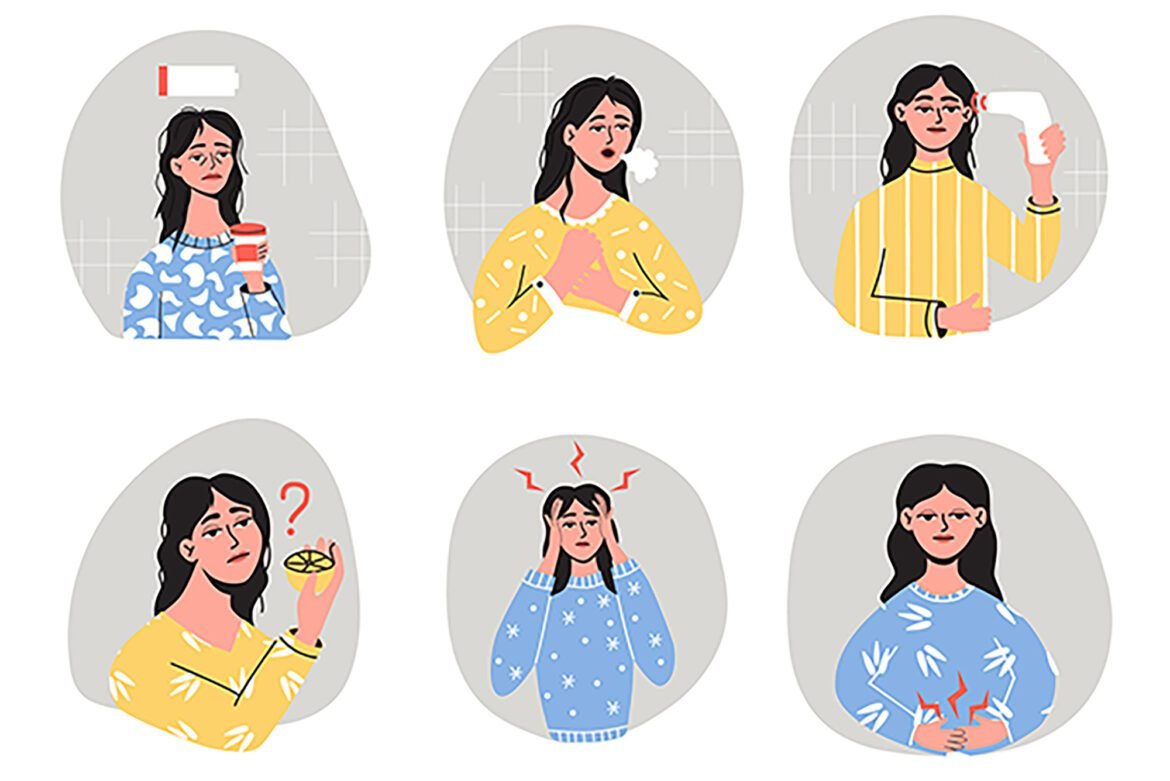As the world grappled with the unprecedented challenges posed by the COVID-19 pandemic, a growing concern has emerged regarding the long-term effects experienced by individuals who have contracted the virus. Beyond the acute symptoms, a subset of survivors has reported lingering health issues, raising questions about the lasting impact of the virus on physical and mental well-being. In this exploration, we delve into the current understanding of the long-term effects of COVID-19, shedding light on the medical community’s ongoing efforts to comprehend and address these lingering repercussions.
1. Post-Acute Sequelae of SARS-CoV-2 (PASC): An Overview
The medical community has coined the term “Post-Acute Sequelae of SARS-CoV-2” (PASC) to describe the prolonged health issues experienced by some individuals after recovering from the acute phase of COVID-19. Commonly known as “long COVID,” this phenomenon encompasses a range of symptoms that persist for weeks or months beyond the initial infection.
2. Physical Health Effects
a. Respiratory Complications
Beyond the initial respiratory distress associated with acute COVID-19, some individuals continue to experience lingering respiratory issues. Shortness of breath, chest pain, and persistent cough are among the reported symptoms, warranting further investigation into the potential long-term impact on lung function.
b. Cardiovascular Consequences
Emerging research suggests a link between COVID-19 and cardiovascular complications. Individuals with a history of the virus may face an increased risk of heart-related issues, including inflammation of the heart muscle (myocarditis) and blood clot formation.
3. Cognitive Impacts and Mental Health Considerations
a. “Brain Fog” and Cognitive Decline
Reports of cognitive difficulties, often referred to as “brain fog,” have surfaced among long COVID patients. This includes issues with concentration, memory lapses, and difficulty in processing information. Researchers are actively investigating the neurological aspects of COVID-19 to comprehend the underlying mechanisms.
b. Mental Health Challenges
The psychological toll of the pandemic extends beyond the acute phase, with increased cases of anxiety, depression, and post-traumatic stress disorder (PTSD) reported among survivors. Addressing mental health in the aftermath of COVID-19 has become a crucial aspect of comprehensive healthcare.
4. Immunological Mysteries: Autoimmunity and Persistent Inflammation
Researchers are exploring the possibility of COVID-19 triggering autoimmune responses in some individuals. Persistent inflammation, even after the virus has cleared the system, raises questions about the long-term impact on the immune system and the potential development of autoimmune conditions.
5. Ongoing Research and Medical Responses
The medical community is actively engaged in ongoing research to unravel the complexities of long COVID. From large-scale cohort studies to in-depth investigations into specific symptoms, scientists are working tirelessly to understand the underlying mechanisms and develop effective treatments for those grappling with persistent health issues.
Conclusion: Navigating the Uncharted Territory
In the wake of the COVID-19 pandemic, the long-term effects continue to pose challenges for individuals and healthcare systems worldwide. While significant progress has been made in understanding the virus, much remains unknown. As research unfolds, a multidisciplinary approach, encompassing medical, psychological, and social considerations, is essential to address the diverse and complex consequences of the virus.
FAQs:
Q1: Can long COVID affect individuals who had mild or asymptomatic cases?
A1: Yes, long COVID can affect individuals regardless of the severity of their initial symptoms. Even those with mild or asymptomatic cases have reported lingering health issues.
Q2: Are there specific treatments for long COVID?
A2: Treatment approaches for long COVID vary based on symptoms. Some individuals may benefit from rehabilitation programs, while others may require specialized care for specific organ systems affected.
Q3: How can individuals support their mental health post-COVID-19 recovery?
A3: Supporting mental health post-COVID-19 involves seeking professional help if needed, maintaining social connections, and adopting stress-reducing activities such as exercise and mindfulness practices.



